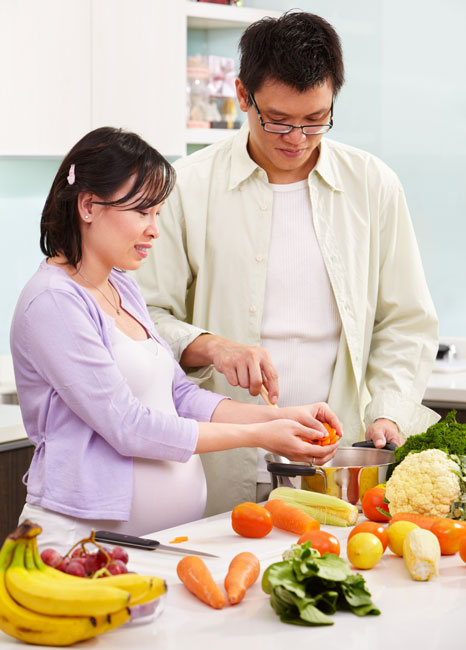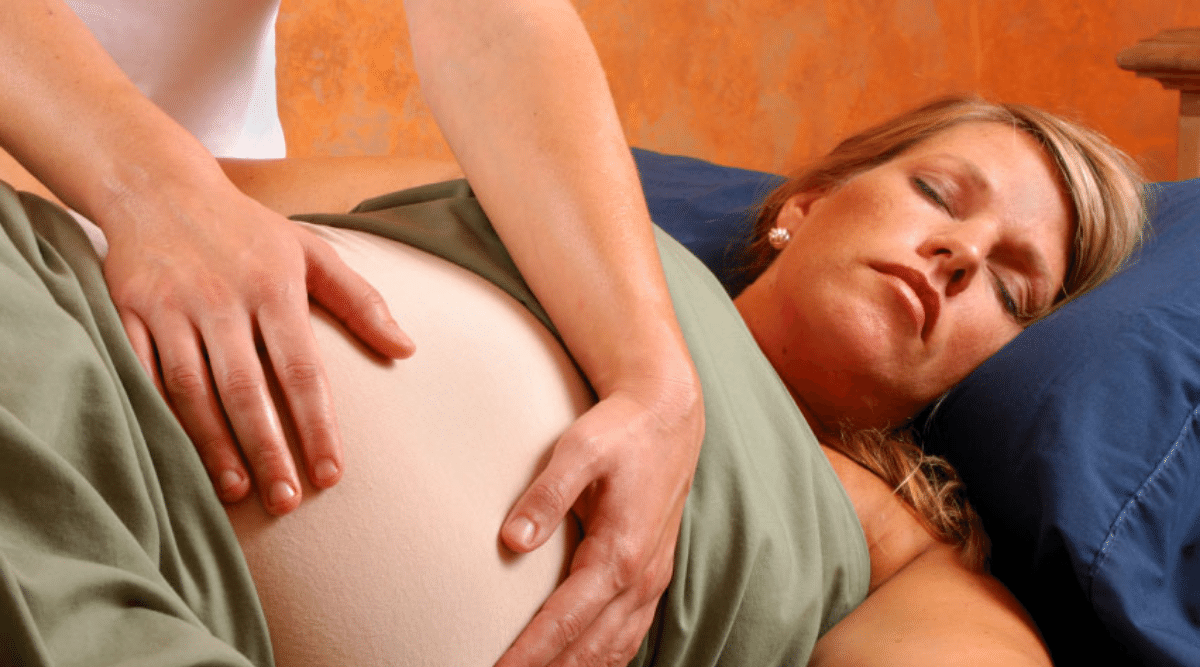If you’re experiencing perinatal anxiety, as many women do, there’s no need to put up with it. Instead of waiting, there are evidence-based treatments to improve your quality of life right now. Some involve seeing a doctor or psychologist, and others you can do by yourself, at home.

Cognitive behavioural therapy and other psychotherapies
You might have guessed that psychotherapy is a common prenatal and postnatal anxiety treatment. Of all the “talk” therapies, cognitive behavioural therapy (CBT) has the most evidence behind it.
CBT helps you identify how your thoughts, emotions and behaviours influence each other. It involves challenging unhelpful ways of thinking, feeling and acting. You learn healthier habits and coping skills you can use right away.
For example, a 2020 study tested CBT as a prenatal and postanal anxiety treatment. The study involved group therapy sessions for two hours a week, over six weeks. Women who took part in therapy had lower anxiety, worry and stress than women waiting for treatment.
What’s more, these benefits lasted – or increased – during the three months after the therapy. Similarly, reviews of several studies also conclude that CBT helps women with perinatal anxiety.
CBT is not the only therapy you can try. Other psychotherapies used for prenatal and postnatal anxiety treatment include:
- acceptance and commitment therapy (ACT)
- psychodynamic therapy
- interpersonal psychotherapy (IPT).
Worried about the cost of therapy? You and your GP can create a mental health treatment plan which gives you access to Medicare rebates which may assist with the cost. Generally, there is an out of the pocket expense.
Mindfulness
Some therapies use mindfulness to achieve their results. For instance, acceptance and commitment therapy, mindfulness-based stress reduction, and mindfulness-based cognitive therapy.
Mindfulness means being aware of the present moment, and how you’re thinking and feeling. For example, you can learn to recognise the early signs of anxiety, and intervene. You might notice tension, sweatiness, a fast heartbeat or tummy trouble. Mindfulness lets you stop and breathe before jumping to conclusions or acting out of anxiety.

Healthy lifestyle habits

Just as nutritious food improves your physical health, of course, it improves your mental health too. To work out how diet affects perinatal anxiety, researchers in Brazil reviewed 10 studies. Overall, they found a healthy pattern of eating links to lower anxiety. This means eating whole foods like whole grains, fruit, vegetables, fish and dairy.
Exercise might also reduce your anxiety. For instance, a German study followed nearly 600 women from 20 weeks of pregnancy to six months after birth. Results showed that exercise predicted subsequent mental health. The more that women cut down their total physical activity, the more depression and anxiety they had. Your midwife and doctor can help you choose safe exercises for you.
Yoga is another type of movement that benefits well-being. A review of 13 studies showed yoga helps combat anxiety in pregnant women. Plus, yoga is another way to practise mindfulness.
Along with diet and exercise, our social lives are also an important part of a healthy lifestyle. Social support helps buffer the negative effects of poor mental health. For example, a 2021 study looked at the effects of social support and negative thinking. For women with better support from friends, having repetitive negative thoughts didn’t relate as strongly to prenatal anxiety.
Another recent study looked at the relationship between anxiety and life satisfaction – how happy you are with your life overall. Results showed that when pregnant women have better social support, their anxiety doesn’t impact their life satisfaction as much. Don’t forget that social support can be gained in many different ways. If meeting physically with friends and family is difficult, take advantage of other non-physical opportunities.
Massage
One low-effort way to reduce anxiety (alongside other treatment) is through massage. In 2020, researchers reviewed the effects of massage on anxiety and depression in pregnancy. Most studies included massages once or twice a week for several weeks.
Overall, massage did moderately improve participants’ anxiety. And who doesn’t feel calmer after a soothing massage? As with most treatments for perinatal anxiety, we still need more research to be surer about the benefits of massage.
It is important to keep in mind though that particular trigger points in the body can cause contractions and premature labour. Seek the service of an expert for a relaxing and safe massage.

Music therapy
Chilling to music is something you can do at home, without involving anyone else or spending a cent. Research shows mixed benefits as a prenatal or postnatal anxiety treatment, but there are really no downsides. Try smooth, flowing and slow-paced music for 30 minutes a day.
Medication
Some women don’t want to take medication for anxiety or anything else during pregnancy.
But for severe mental illness, the benefits to you and your baby might outweigh the risks. There are several anxiety medications that are relatively safe in pregnancy and while breastfeeding. You and your doctor would need to carefully consider your situation and choose the best approach together.
Quick things to do to reduce perinatal anxiety
If you haven’t already, first book an appointment with your GP to talk about how you’re feeling. Then, here are some simple things to try that only take a few minutes:
- Text a friend for a walk and a chat.
- Find an online yoga video.
- Order a fruit and vegetable box delivery.
- Download the Australian healthy eating guidelines for pregnancy.
- Take one of your problems and work out who can help you with a solution.
- Book a massage
- Choose a playgroup, parents’ group or pregnancy support group to attend.
- Relax on the couch with soothing music.
- Close your eyes and count how many different sounds you can hear.
- Practise a deep breathing technique.
- Visit PANDA (Perinatal Anxiety and Depression Australia) for info and support.
Of course, this isn’t an exhaustive list – there’s more help out there. Work with your doctor, midwife and psychologist to come up with helpful strategies for your particular situation.
Reference List
PBB aims to keep you informed with the latest research-based information. Check out our reference list used in the creation of this article.
Page revised on 6th January 2022


Yes, don’t suffer alone; reach out and ask for support.